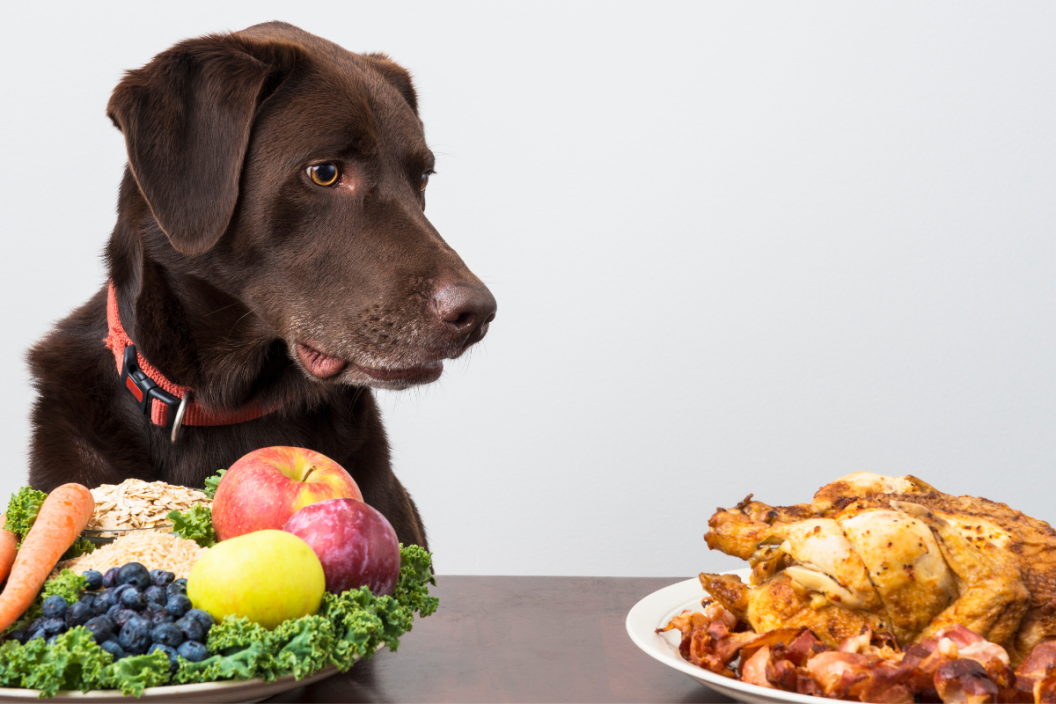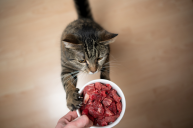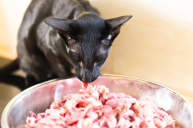Will plant-based foods replace kibble diets made from meat? Here's what science says.
A vegan diet for dogs is now on the table, with pet food companies moving away from using animal protein. Koji (a staple in Asian plant-based diets) is essentially the core protein source in a vegan diet made by new dog food brands.
But is this a game-changer, and should a dog's diet consist of vegan dog food? Could buying traditional meat-based dog food at your local pet store be a thing of the past? We all benefit from environmentally friendly plant-based kibble when looking at meat's environmental impact, but can dogs be vegan?
The Argument for Plant-Based Foods
https://www.instagram.com/p/BwKrCPTDAoO/
In an interview with National Geographic, Ryan Bethencourt, co-founder of plant-based kibble Wild Earth, based in Berkeley, California, says that the overall market for plant-based foods directly replacing meat is already at $4.9 billion, growing 8.1 percent in 2017 alone. So it seems that consumers are ready to adopt a meat-free lifestyle and bring their dogs with them.
Ryan told National Geographic:
"The end goal is to create an environmentally friendly, high-quality food for pets that's vegan and tasty.
The dog food is made with koji, which is 50 percent protein (in contrast, steak is 30 percent.) The koji is pressed like tofu with a beet-based sugar solution, which is then sliced and baked to make the kibble. The company also plans to mix vegetables like pumpkin, sweet potato, buckwheat, and potato flour to make different flavors to add fat and fiber requirements.
But Does Science Back Plant-Based or Vegan Diets for Dogs?
https://www.instagram.com/p/CVK8-_mMjzK/
RELATED: Benefits of Raw Dog Food Diets + Making Your Own at Home!
In the U.S., people share their households with 42.7 million cats and 63.4 million dogs, according to the 2019-2020 National Pet Owners Survey. How many of these companion animals will be offered a vegan diet? Is there such a thing as a vegan dog? Some pet owners say their dogs thrive on it. Those with dogs that have food allergies and suffer from obesity say it helps. Others work with board-certified veterinary nutritionists on carefully designed vegan diets that meet all of their pet's nutritional needs.
According to a report published in 2015 looking at vegetarian commercial pet food diets by the Journal of the American Medical Veterinary Association:
"Most diets assessed in this study were not compliant with AAFCO labeling regulations, and there were concerns regarding adequacy of AA content. Manufacturers should ensure regulatory compliance and nutritional adequacy of all diets, and pets fed commercially available vegetarian diets should be monitored and assessed routinely."
A Wild Earth company press release states that Wild Earth products will be tested via a protocol approved by the Association of American Feed Control Officials and PETA, conducted by volunteers and animals living in homes instead of caged laboratory animals as with conventional pet foods.
Another academic research study conducted by the Center for Animal Welfare discovered:
"A significant and growing body of population studies and cases suggest that cats and dogs may be successfully maintained on nutritionally sound vegetarian diets long-term, and indeed, may thrive. Such diets have been associated with benefits such as improved coat condition, allergy control, weight control, increased overall health and vitality, arthritis regression, diabetes regression, cataract resolution, and decreased incidences of cancer, infections, hypothyroidism and ectoparasites (fleas, ticks, lice and mites)."
Supporting Your Best Friend's Nutrition
https://www.instagram.com/p/B97LcPnHYR-/
So, the consensus? Some cats and dogs may thrive as long as the diet is nutritionally balanced to avoid health problems.
Contrary to what some believe, dogs are not wolves. And one of the major genetic differences between dogs and wolves is that dogs have evolved to better digest starches (carbohydrates) than wolves. In addition, dogs are more accurately classified as omnivores than carnivores, where cats are obligate carnivores. Therefore, dogs can thrive on a monitored vegan diet, but cats cannot as they need specific nutrients found in cat food with animal products, like taurine and arachidonic acid.
Dog owners should be vigilant about the specific nutritional requirements of their best friend. Knowing what essential nutrients are in these plant-based diets is half the battle!
What do you think of this idea of plant protein as the base for dog diets? Share your thoughts about meat-free diets and dog nutrition on our Wide Open Pets Facebook page!




